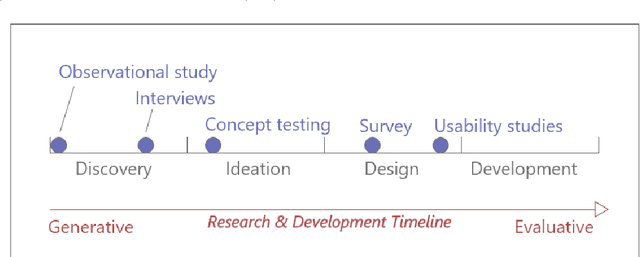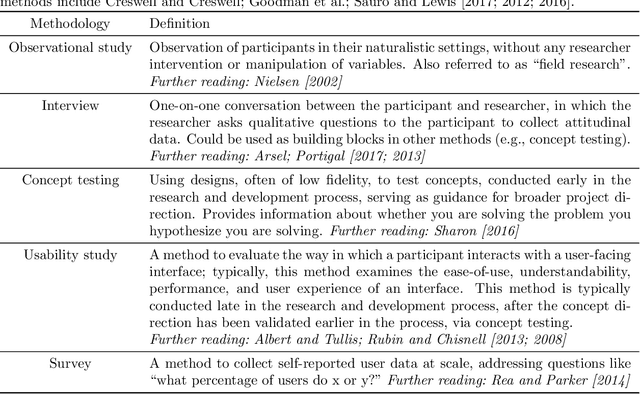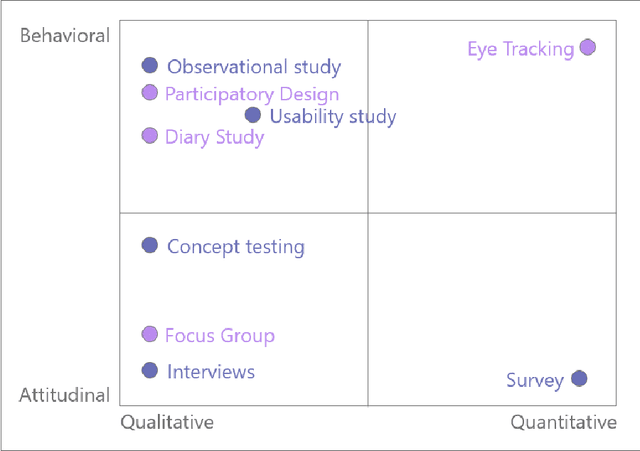Stefanie Hutka
Towards Better User Studies in Computer Graphics and Vision
Jun 23, 2022


Abstract:Online crowdsourcing platforms make it easy to perform evaluations of algorithm outputs with surveys that ask questions like "which image is better, A or B?") The proliferation of these "user studies" in vision and graphics research papers has led to an increase of hastily conducted studies that are sloppy and uninformative at best, and potentially harmful and misleading. We argue that more attention needs to be paid to both the design and reporting of user studies in computer vision and graphics papers. In an attempt to improve practitioners' knowledge and increase the trustworthiness and replicability of user studies, we provide an overview of methodologies from user experience research (UXR), human-computer interaction (HCI), and related fields. We discuss foundational user research methods (e.g., needfinding) that are presently underutilized in computer vision and graphics research, but can provide valuable guidance for research projects. We provide further pointers to the literature for readers interested in exploring other UXR methodologies. Finally, we describe broader open issues and recommendations for the research community. We encourage authors and reviewers alike to recognize that not every research contribution requires a user study, and that having no study at all is better than having a carelessly conducted one.
 Add to Chrome
Add to Chrome Add to Firefox
Add to Firefox Add to Edge
Add to Edge